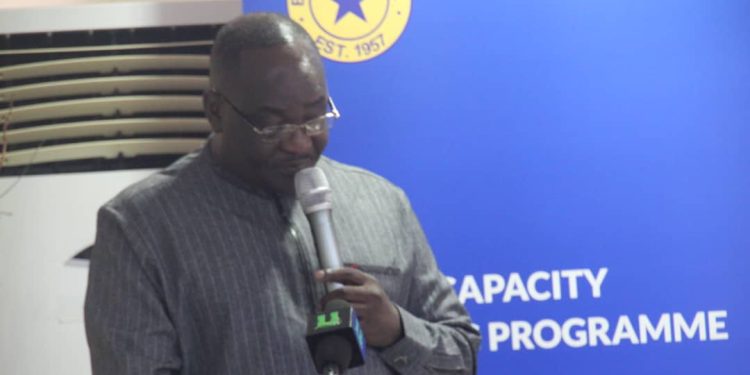Central Bank Holds Journalist Workshop in Eastern Region Amid Push for Credible Reporting
The Bank of Ghana (BoG) has reaffirmed its commitment to deepening central bank communication and fostering public trust in monetary policy by opening a four-day training programme for journalists in Ghana’s Eastern Region.
Addressing participants at the launch of the workshop in Koforidua on Wednesday, the Director of Communications at the BoG, Mr. Bernard Otabil, underscored the pivotal role of the media in enhancing transparency and credibility in monetary policy transmission.
“This initiative reflects our unwavering commitment to fostering a well-informed media landscape, particularly in the areas of monetary policy, macroeconomic analysis, and financial reporting,” Otabil noted in his opening remarks.
The training—running from June 25 to 28—forms part of a broader media engagement campaign by the central bank, targeting regional media hubs to strengthen relationships and ensure accurate dissemination of economic data and central bank decisions. Similar workshops have previously been held in the Volta, Ashanti, and Western regions, with over 75 journalists benefiting from the programme. The figure is expected to exceed 100 with the inclusion of this latest cohort.
Highlighting persistent challenges of misinformation and public misinterpretation of monetary policy, Otabil stressed the need for continued media capacity-building. “There exists a persistent need for enhanced clarity and comprehension of the Bank’s monetary policy framework and the underlying factors influencing the decision-making process,” he stated.
Participants of the Eastern Region workshop will receive instruction on a range of macroeconomic topics, including inflation dynamics, monetary policy implementation, exchange rate developments, responsible borrowing, and central bank balance sheet analysis.
Otabil also revealed key innovations introduced by Governor Dr. Johnson Asiama aimed at enhancing transparency and media inclusivity. These include pre-Monetary Policy Committee (MPC) engagement sessions with journalists and the publication of individual MPC members’ submissions—a move described as unprecedented in Ghana’s central banking history.
“These meetings have proved crucial to the Bank’s monetary policy process,” he remarked, adding that the publication of MPC submissions brings Ghana “at par with other central banks using the inflation-targeting framework.”
As part of the Bank’s effort to institutionalise media collaboration, press corps groups have been established in regions where previous workshops have taken place, with dedicated WhatsApp channels facilitating real-time information sharing. A similar group will be created for Eastern Region journalists upon completion of the programme.
The BoG’s media training initiative signals an evolving approach to central bank communication strategy, increasingly premised on access, clarity, and inclusive discourse—principles viewed as vital to safeguarding macroeconomic stability in a post-reform economy.








